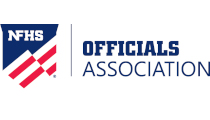Trust but verify — Reviewing your officials association’s finances
By Joseph C. Erwin on July 21, 2015 officials PrintIn the words of former President Ronald Reagan, "Trust but verify." These words were used when President Reagan was speaking of the disarmament of the former Soviet Union's nuclear arsenal, but can also be used today as it relates to reviewing your association's financial records. It seems like you can't pick up the newspaper, read something on the Internet or watch television without hearing about another scam or someone stealing money.
The Bernie Madoff ponzi scheme is probably one of the biggest and most reported scams in American history — one that caused people to lose their entire life savings and caused irreparable harm to numerous non-profit organizations. Fraud cases come in all forms and sizes and are certainly nothing new. Shortly after Madoff was exposed, there was the Stanford Financial fraud case, which like the Madoff case, caused people to lose millions of dollars.
As a banker, I am unfortunately all too familiar with cases of mortgage fraud. This ran rampant for years and was only truly exposed when the real estate market crashed. I read in the local newspaper the other day about a bookkeeper who had been stealing money from her company for nearly a dozen years. Did it not raise anyone's suspicion when the bookkeeper was taking regular trips to Las Vegas or had a propensity for designer shoes? Trust but verify!
As a society, we are generally trusting people. This is not a bad thing; however, when it comes to money, nobody wants to be "ripped off." This is where the words of “The Great Communicator” come into play (Trust but verify). I am a firm believer in verification, and it's up to each association's board of directors to audit the financial records, and review the books of the association. Something as simple as asking for a copy of the bank statement can be a start. If the treasurer reports that there is $2,000 in the bank, then there should be a bank statement verifying that there is in fact $2,000.
If you suspect there are accounting irregularities, ask to meet with the treasurer and require a full accounting of the finances. Ask the treasurer to explain certain expenditures that might not be for the good of the association. Review the actual expenditures against the budget, and make sure that the funds are being properly spent and accounted for. Understand how the treasurer accounts for cash receipts such as the payment of member dues. Until our association recently switched to an online registration program that requires each member to pay via a credit card or ACH, I was amazed how many of our members paid in cash and never asked for a receipt.
As a treasurer, I welcome any type of audit and your treasurer should as well. After all, it is the association's money, and its members are entitled to a full accounting of where the money goes. If your treasurer becomes confrontational or does not agree to be audited, that could be the first sign of potential trouble. Trust but verify!
Our local basketball officials association is a non-profit corporation. The word "non-profit" means just that. We try to operate our association on a break-even budget every year, but some years we are over and some years we are under. We have done a much better job at budgeting over the years, but there are always the unexpected costs or expenses. While it is not uncommon for associations to have a reserve or "slush fund" for the unexpected, this does not mean that these monies should not be audited as well. The board should be aware of these monies and require the same level of accounting and verification as any other funds. Trust but verify!
Learn from experience and trust your gut. In my 17 continual years of serving as our treasurer, I have learned many valuable lessons about trust when it comes to association money. In my early years, the board once allowed one of our members to purchase a computer for association business. Computers were quite expensive years ago and the board trusted this individual to get us a good deal. We agreed to reimburse him for the computer, but for some reason something didn't feel right to me. I had a feeling in my gut that this guy was not shooting straight with us.
Sure enough, a short time later after reimbursing him for the cost, we discovered that he had falsified a receipt. This person had lost his job and was having financial problems. He essentially disappeared with our computer and our money. I didn't trust my gut and it stung us. If it looks like a duck and quacks like a duck, it's probably a duck. Trust but verify!
The intent of this article is not to suggest that the person handling your association's money is a thief or rip-off artist. In fact, cases of stealing from associations are few and far between.
The article is meant to simply think about a few basic things and assure that the proper safeguards are in place as they relate to your association’s money. Nobody likes to be the victim of fraud or get ripped off, and it should be no different for your association. If we simply “Trust but verify,” it could pay dividends down the road.
Joseph C. Erwin
Joe Erwin is a commercial real estate loan officer in South Florida for Regions Bank. Erwin has officiated high school basketball for 21 years and has been a member of the East Coast Basketball Officials Association in Palm Beach County since 1992 when he moved to Palm Beach from Pensacola.
Most Recent Articles
- nfhs news NFHS Learning Center Delivers 25 Millionth Course
- Track & Field/Cross Country article Effective Communication with Athletes and Coaches
- nfhs news Player Equipment Changes Highlight 2025 High School Football Rules Revisions
- Player Equipment Changes Highlight 2025 High School Football Rules Revisions
- nfhs news Judgment Call on Second Contact Eliminated in High School Volleyball






